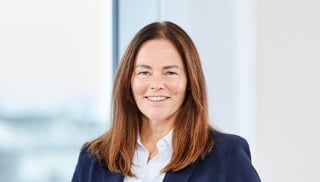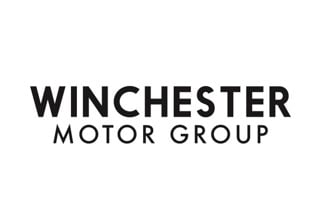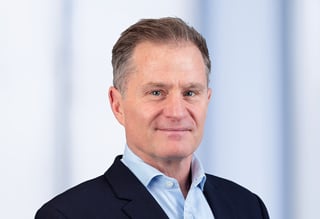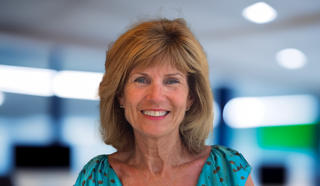Franchised dealers at the AM Executive Breakfast Club’s recent meeting heard from guest speaker James Rothnie, who helped build the EasyJet brand alongside its high-profile founder, Stelios Haji-Ioannou. Rothnie joined the start-up airline in 1995 from Disneyland Paris, where he was head of international marketing. It was there he learned that when people come to a business expecting something, it must deliver that expectation to keep them happy.
 |
|
|
Guest speaker James Rothnie helped build the EasyJet brand |
|
NEED TO KNOW |
|
| ♦ EasyJet stuck closely to brand values of low cost, punctuality, safety and reliability | |
| ♦ Understanding customer needs is very important | |
“Once you’ve established certain values to your brand it will stick in the mind of the consumer,” he said.
EasyJet launched in 1995 with clear brand values: low cost, punctuality, safety and reliability. It wanted to bring flying to the masses by making prices lower than existing UK airlines.
Influenced by ideas already in operation in the USA, it uses secondary airports and its model of selling directly to customers stripped out 20% of the usual costs associated with airlines operating through travel agents and a ticket distribution network. Flights offered one class of seat and no meal, meaning planes could be turned around quickly.The challenge from launch was to raise its profile and ensure consumers understood its business model. A £5 million advertising campaign made little impact, so the company courted the media. With help from its outspoken founder, Stelios Haji-Ioannou, and Rothnie channelling its media and public relations, EasyJet picked a public fight with the market leader, British Airways (BA). Rothnie said the established airlines had a habit of advertising the glamour of their service then failing to live up to that expectation. EasyJet set out to keep customers’ expectations low then over-deliver.
The opportunity to promote issues of real interest to consumers, and in doing so expose the opposition for its self-interest, is a useful tool to raise a company’s profile.
| COME TO THE AM EXECUTIVE BREAKFAST CLUB – FEBRUARY 7 MEETING | |||
|
The meetings are free and exclusive to senior executives of franchised dealer groups. After a cooked breakfast at Simpson’s in the Strand, London, dealers will hear a presentation from guest speaker, business guru Geoff Burch, below, and a chance to network and share best practice from fellow senior figures. |
|||
|
|
|||
|
♦ For details, email luke.clements@ bauermedia.co.uk or visit www.am-online.com/ breakfast-club/ |
|||
Rothnie said: “This was sustainable competitive advantage. Our cost structure was always going to be less than rivals, that meant we could always make money charging our customers lower prices.”
Three years later, when BA launched Go, its own low-cost carrier, 10 EasyJet staff, including Haji-Ioannou, occupied seats on its inaugural flight, dressed in their company colours, and handed out flyers offering a free EasyJet flight to everyone on board. Such guerrilla marketing gained international exposure for EasyJet, and Rothnie said the fact that BA had decided to copy EasyJet’s model showed business travellers it was something worth considering. Until then, it had been largely the preserve of students and backpackers.
“Today if you want to buy a flight in Europe you go online and pay by debit card direct from the supplier. It’s a complete step change in just 15 years.” When BA adopted the strapline ‘the world’s favourite airline’ EasyJet trademarked its own as ‘the web’s favourite airline’.Within the business, yield management and an understanding of customer needs are very important. Seat prices are cheapest when the flight is months in the future and still empty. Once it starts to fill, the seat price, and profitability, quickly increases. Initially, this was changed manually, but as the business has grown it has become automated. Rothnie said this model suits both types of customer – the leisure traveller who books a weekend flight well in advance for a bargain, and the company-funded business traveller who needs a mid-week flight at short notice.
Any brand has to also value corporate culture. Rothnie said: “If you’re operating a business with a lot of employees and which is aimed at the consumer, then how you behave inside the company and how you treat your customers is vitally important.” His company was influenced by the culture of US firm Southwest Airlines. It encouraged its people to take their jobs seriously but not themselves, and still remains a light-hearted, informal yet professional business.
Giving a business personality will gain it attention. The ITV factual series Airline was a huge boost to the business. Film crews followed staff and passengers between 1999 and 2005 and while it was ‘warts and all’, with occasional irate customers, it also showed people jetting off and having a good time.
“You have to take the risk but this is how you build a brand,” Rothnie said. “We set out to be a utility, providing a safe, reliable seat to the many. We created a consumer brand.”
From EasyJet, the company has expanded into other markets with its Easy brand, from internet cafes and car rental depots to airport buses and city hotels, all focused on low cost. The culture within the company was to always think of new ways of doing business, and to look for new goods and services to provide.






















Login to comment
Comments
No comments have been made yet.